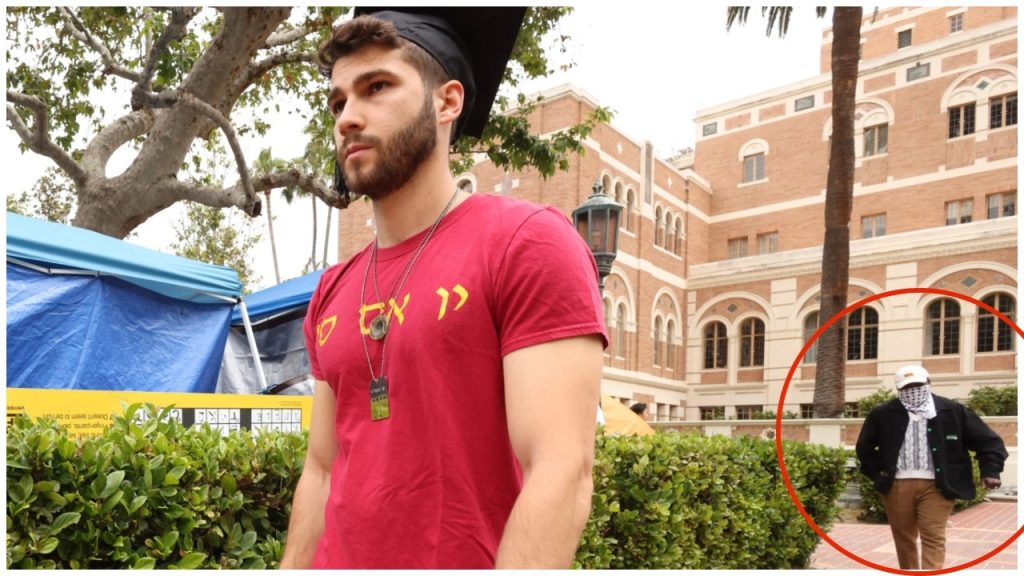A Jewish graduate student at USC found himself confronting antisemitism head-on while trying to take graduation photos on campus. The student, named Mark Rayant, was followed and harassed by individuals from an anti-Israel encampment who demanded that the school cut financial ties with Israel. This incident occurred amidst a larger protest organized by the USC Divest from Death Coalition, with demands including no police presence on campus and ending study abroad programs in Israel. The encampment was removed by the police, marking the second time protesters were cleared from the campus.
Rayant, who stands up against the intimidation tactics and fear-mongering of anti-Israel agitators, believes that Jews deserve to celebrate their graduation without facing harassment. He refused to be silenced by these radicals and took matters into his own hands by confronting them directly. Rayant’s experience reflects a larger issue of escalating tensions on campus due to protests and demonstrations against Israel, leading to the cancellation of the main graduation ceremony. The student expressed disappointment in the university’s handling of the situation, which has resulted in a wave of antisemitism across the campus.
Reflecting on the Holocaust, Rayant emphasized the importance of speaking out against hatred and discrimination, drawing upon the experiences of Holocaust survivors that he has been in contact with. Despite the challenges faced by Jewish students at USC, Rayant remains determined to stand up against those spreading antisemitism and hateful ideologies. He identified the protesters as individuals with Marxist values who seek to undermine American institutions and values, calling for action to stop them from spreading their divisive rhetoric on campus.
The controversy at USC escalated when an anti-Israel student was initially chosen as valedictorian, sparking safety concerns that led to the cancellation of her speech. This decision further exacerbated the climate of antisemitism on campus and ultimately led to the cancellation of the main graduation ceremony. Rayant called for students and community members to speak out against these issues and condemn the actions of those promoting hatred and division. He emphasized the need for unity and collective action to combat the growing wave of antisemitism and anti-Israel sentiments among some student groups.
The situation at USC reflects a broader trend of escalating tensions and conflicts on college campuses related to the Israeli-Palestinian conflict. The cancellation of graduation ceremonies and the targeting of Jewish students have raised concerns about the impact of these protests on campus culture and the safety of students. The student-led protests have drawn criticism for their impact on academic institutions and their failure to uphold principles of free speech and diversity of thought. Rayant’s experience highlights the need for dialogue, understanding, and mutual respect to address these complex and sensitive issues in a constructive and peaceful manner.


